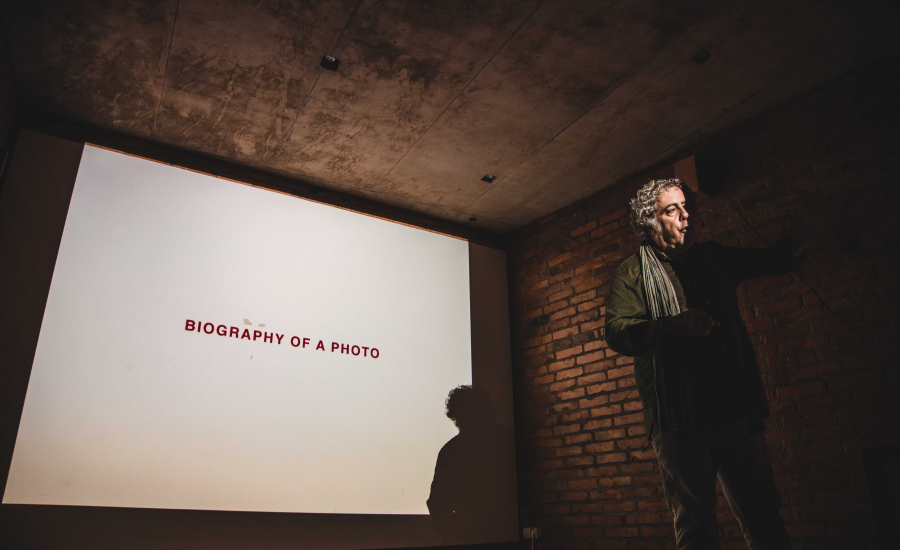07/08/2021
Ron Haviv and Paul Lowe workshop on photography and documentation started on Friday. In a public talk Ron Haviv reflects on how photography can change the course of history.
DokuFest had its kick start today with a workshop on documentary photographic practice, history, photojournalism, and ethics. Ron Haviv, a world renown photographer whose work reflects on human rights issues and conflict and one of the co-founders of ‘’VII Agency’’, together with Paul Lowe an impactful photojournalist whose work is published in the major newspapers around the globe are here in Prizren, at DokuFest.
Ron Haviv presented some of his most important projects while also raising many questions about photography, witnessing, and troubling relationship with truthfulness. His photographic chain of witnessing war crimes, violence and human loss is a service to the people who suffered through wars and conflict, to justice and memory.
His work is a depiction of despair, fear, and loss. One of the projects shown at this public talk was the ‘Biography of a photo’, discussing two of his most famous works, one taken in Panama framing a man covered in blood and the other in Bosnia of a shoulder in the premise kicking dead bodies in the streets. As he says, now he has no control over these photos, and they are there for everyone to see and use.
Showing a series of photographic documentation of some of the most markable conflicts in the world, Haviv tackled the importance of having an eyewitness who can show to the world what is happening in a place where is difficult to get an immediate visual sighting of what is happening in real time.
Haviv during his talk showed a presentation of how the Serbian audience reacted to his photos taken in Bosnia during the war when they were shown in a gallery in Belgrade. The stubbornness and rage of the audience highlighted the lack of will of confronting the past.
Reflecting on how photography can change or spark new reactions take a radical nudge in a place where people try to cope with the sense of guilt and in the meantime shows how people can react to a traumatic and horrible past.
While going back in time Haviv mentioned what he had learned in history books and how western leaders would react to the Shoah: they would say that they did not know.
‘’Nobody should have to say that they didn’t know. Photography should have a reason and a purpose to hold people accountable for what they have done’’, said Haviv.
The thin line between ethics and photography at a time of crises is dilemma which Haviv brings a very simple response to: ‘’If there can not be done something to save a life, one must document it to hold accountable the people who did the deed.’’
Both Haviv and Lowe are continuing their workshop Saturday at KinoKlub in Prizren, where you can also listen to Paul Lowe’s public talk about Photography and History.



